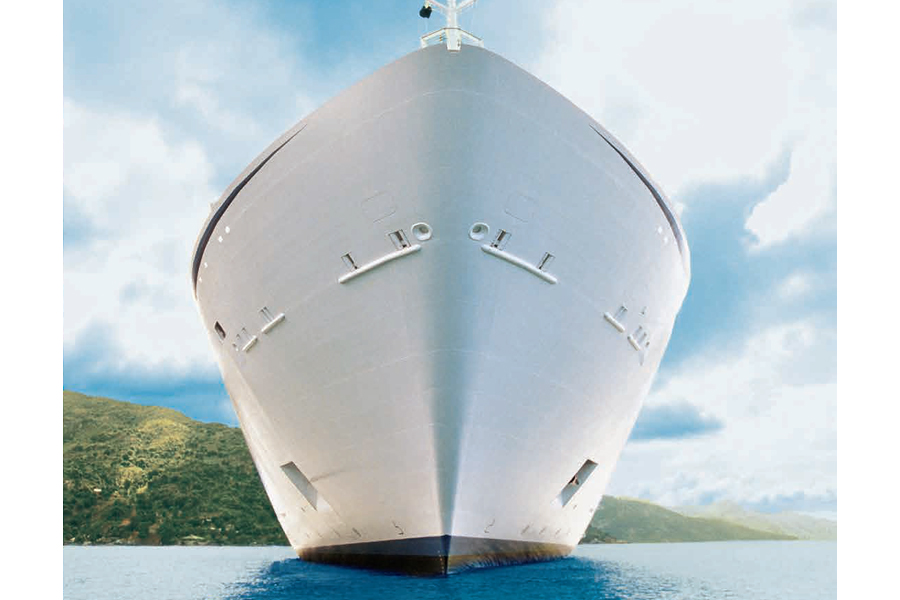HEALTHY SAIL PANEL RECOMMENDATIONS OVERVIEW

The cruise industry is among the hospitality sectors that have been especially impacted by the COVID-19 pandemic. The industry has been nearly shuttered since mid-March. A four-month effort by a panel of experts in public health, infectious disease, biosecurity, epidemiology, hospitality and maritime operations have compiled recommendations intended to provide the necessary protocols to restart cruising. This report has been released to the public and submitted to the Centers for Disease Control and Prevention for review. The recommendations are rooted in the best scientific and public health information available and offer guidance to the cruise industry seeking to protect the health and safety of their customers and employees. The five areas of focus are:
Health: Testing, Screening and Exposure Reduction
“Key to preventing an outbreak on board a ship will be developing and implementing several layers of protection — beginning before crew and guests arrive to the ship, continuing through the time when they are on board and lasting until they eventually debark. The best way to prevent an outbreak on board is through robust testing prior to embarkation, supported by preboard education and health screening for guests and crew. If diligently followed, these steps will greatly reduce the likelihood of the introduction of the virus on cruise ships.”
Sanitation and Ventilation
“It is believed that the virus is transmitted mainly through respiratory droplets produced when an infected person coughs, sneezes or talks. While the risk of spread can be mitigated through strategies such as physical distancing and mask wearing, focus on reducing transmission via sanitation of surfaces and objects and through air management strategies is warranted. Stringent sanitation protocols and hand hygiene measures for guests and crew can reduce the risk of transmission via surfaces. Since other infectious illnesses like norovirus and influenza are also likely to be transmitted via contaminated surfaces, enhanced sanitation protocols will help mitigate the risk of contracting various pathogens. Since airborne particles play a role in virus transmission, ensuring that a ship is equipped with appropriate heating, ventilation and air conditioning systems and other air control measures will also help prevent an outbreak on board a ship.”
Response, Contingency Planning and Execution
“Essential to preparing to sail is an appropriate plan for responding in the event of an outbreak on board a ship. There are three key components to an effective mobilization plan in that event: (1) medical capabilities to effectively treat symptomatic patients, (2) a plan to enable cruise operators to quickly identify symptomatic and asymptomatic individuals and use isolation and quarantine to stop the spread of infection, and (3) a plan for evacuating individual guests and impacted crew, or, in the most extreme circumstances, a whole ship, if warranted.”
Destination and Excursion Planning
“Planning trip destinations is a particularly challenging task for cruise operators in the current environment, as decisions must be made well in advance of sailing. This requires cruise operators to leverage data projections and best estimates to predict the future conditions (as they relate to the virus) in selected destinations and to flexibly respond as this information changes. Cruise operators must rely on imperfect inputs to these decisions and rely on partnerships to acquire up-to-date information about a given locality, as well as establish arrangements for cruise line-sponsored excursions.”
Mitigating Risks for Crew Members
“Most recommendations from the Panel apply to both guests and crew. Nonetheless, the Panel believes a special focus on crew is warranted given that crew are on board ships for significantly longer than guests and have different living conditions and potential exposures based on their roles. A robust testing regimen for crew, precautions on board like physical distancing and PPE use, thorough training, attention to the living conditions for crew and reinforcing a culture of self-reporting any health or safety concerns can create the conditions for a safer working and living environment for a ship’s staff.”
The Panel recognizes that just as important as writing health and safety protocols is ensuring that those protocols are implemented appropriately. The Panel recommends that cruise operators have systems and processes in place to continuously evaluate implementation of and adherence to their revised protocols for health and safety on board.
Cruise operators have demonstrated their commitment to adopting numerous new protocols to implement the recommendations made by the Panel. Two final recommendations for cruise operators that may bolster public confidence in their return to service are: (1) iteratively testing these new risk mitigation measures, and (2) creating a cycle of continuous learning and improvement.
The challenge posed to the Healthy Sail Panel was complex. Our understanding and knowledge of SARS-CoV-2 is evolving daily and these plans will need to evolve to incorporate new science and practices. We know that safety is top of mind, now more than ever. Therefore, when you travel with one of our travel partners, you'll have the security and peace of mind of traveling with a brand backed by AAA. Whether you're looking for a road trip through your own backyard, or global journeys halfway around the world, our legacy as travel advisors means you can feel confident we’ve got your back thanks to AAA’s more than 100 years’ experience of trip planning for Americans.
Highlights and excerpts from the recent Healthy Sail Report commissioned by Royal Caribbean Group and Norwegian Cruise Lines. Go to AAA.com for the full report.




